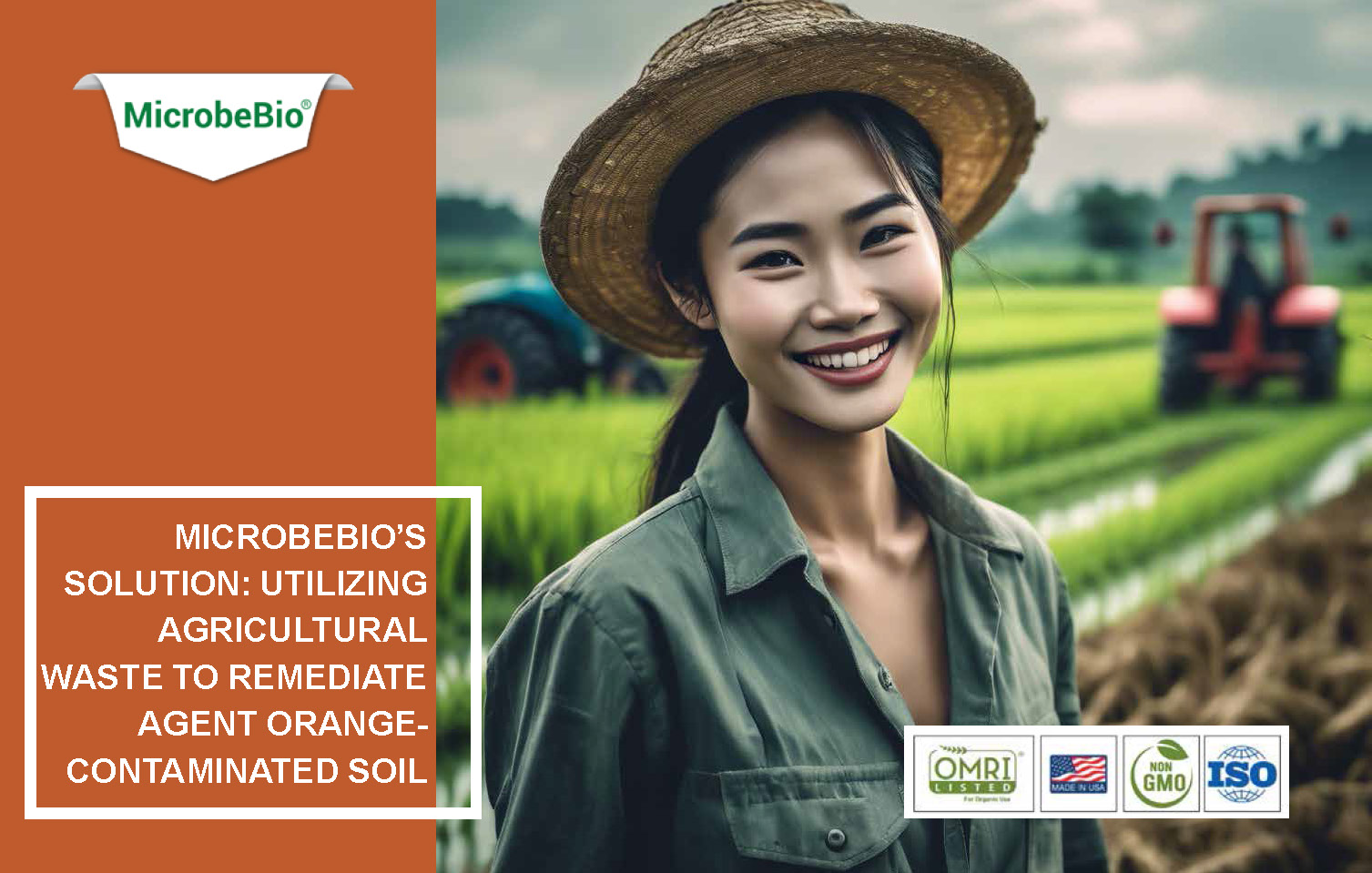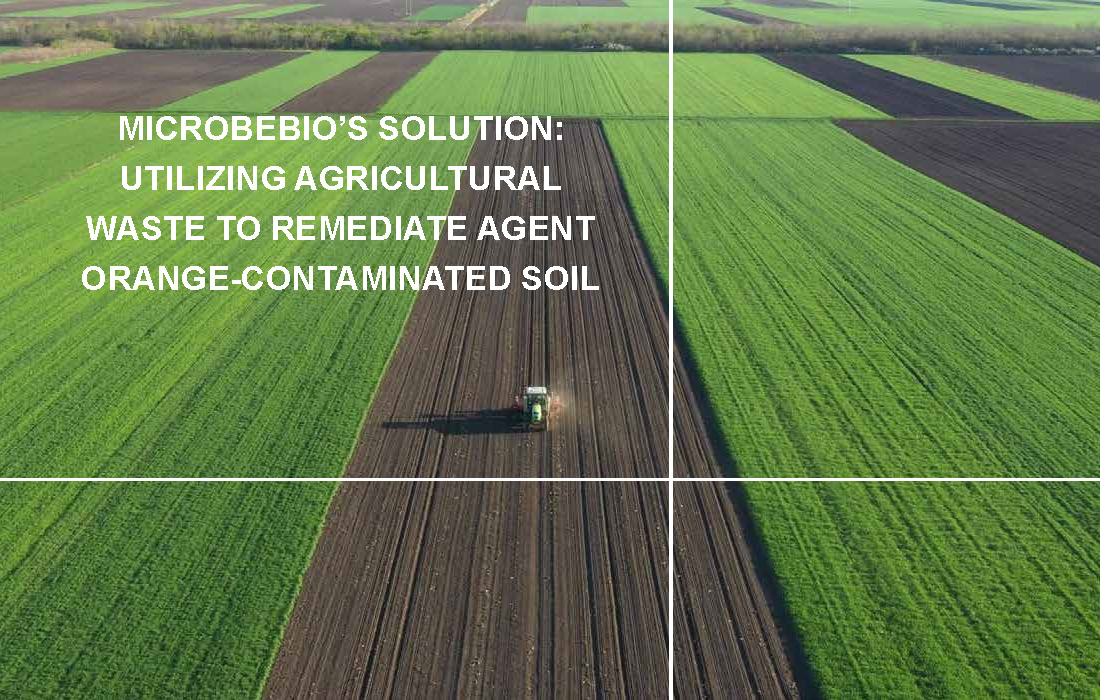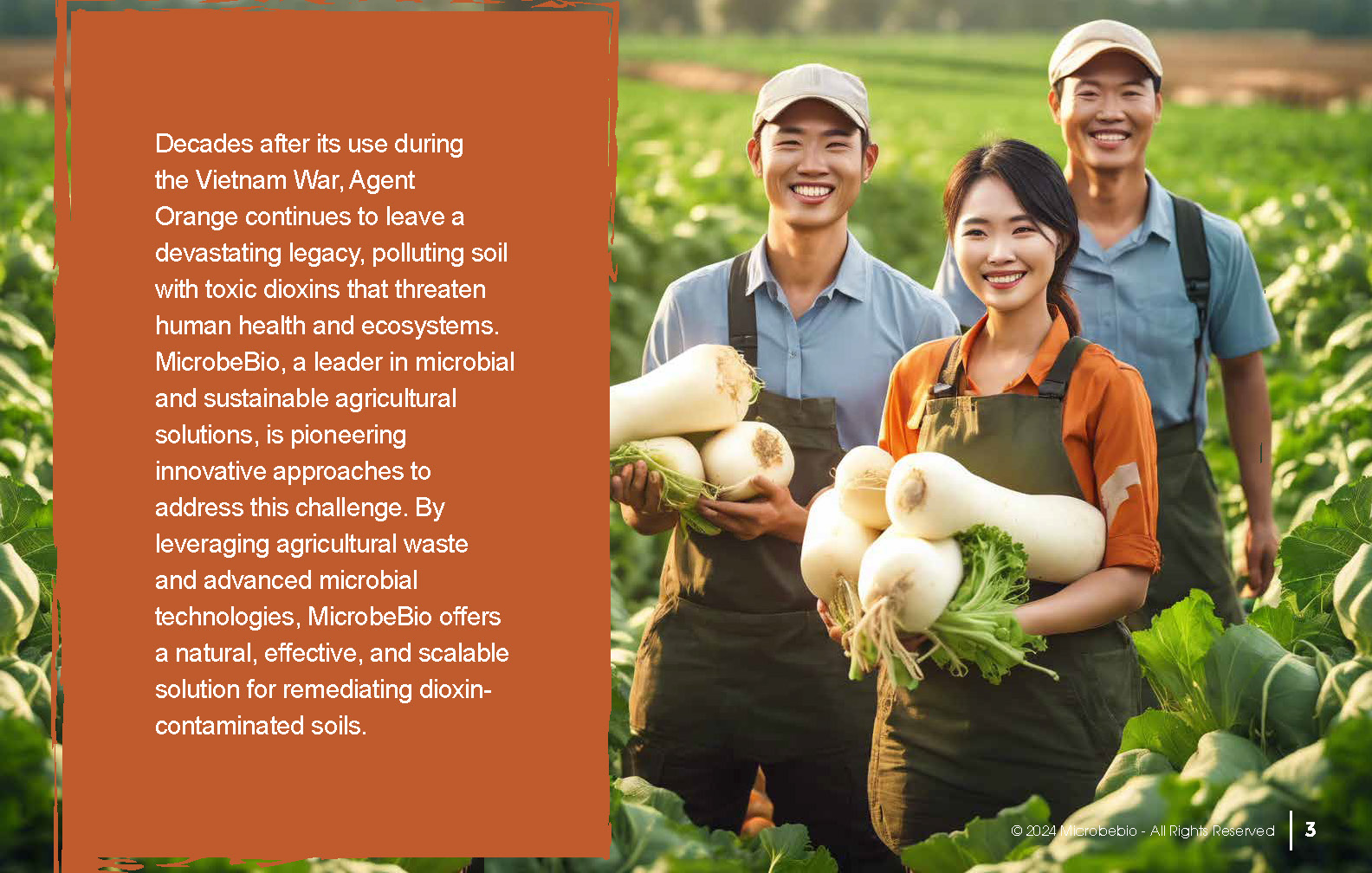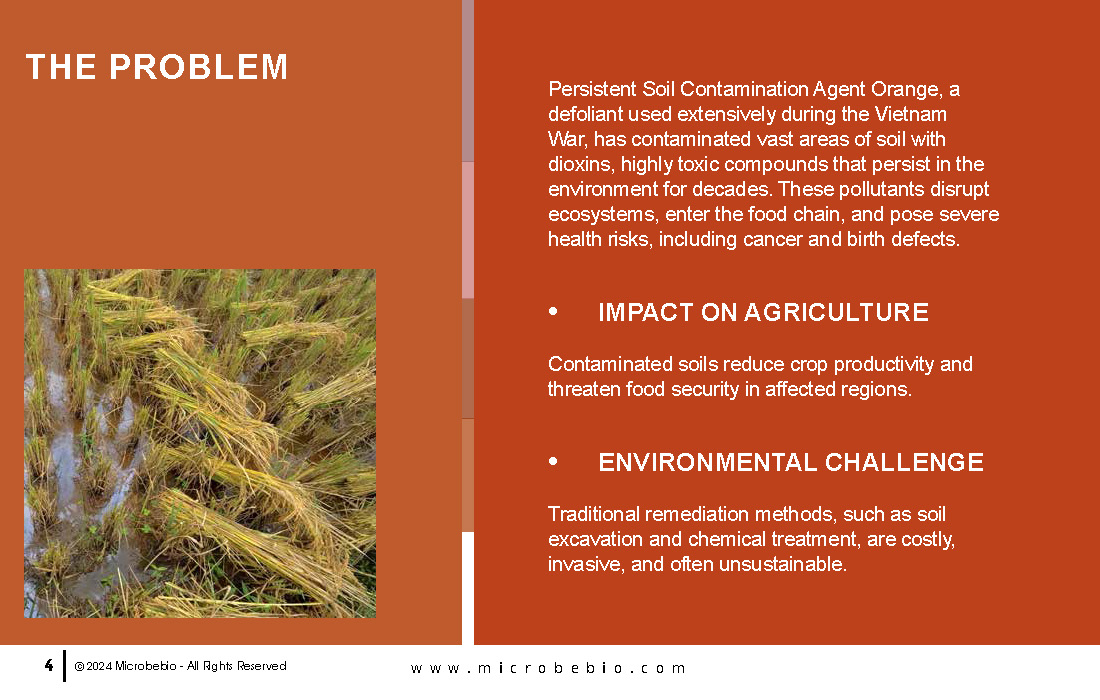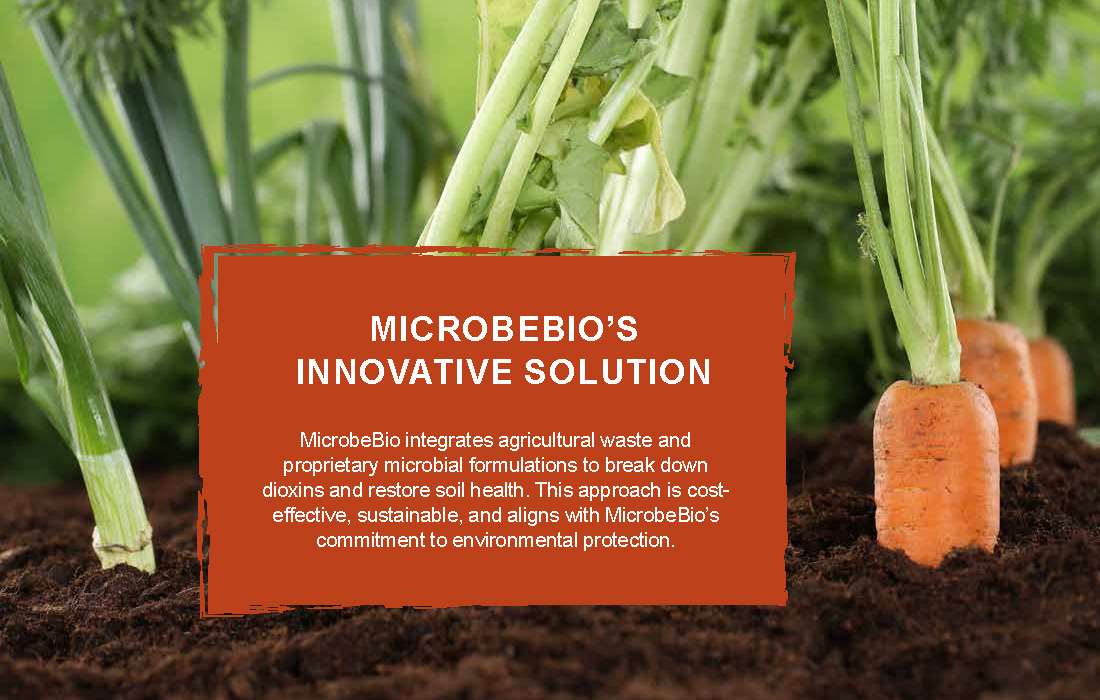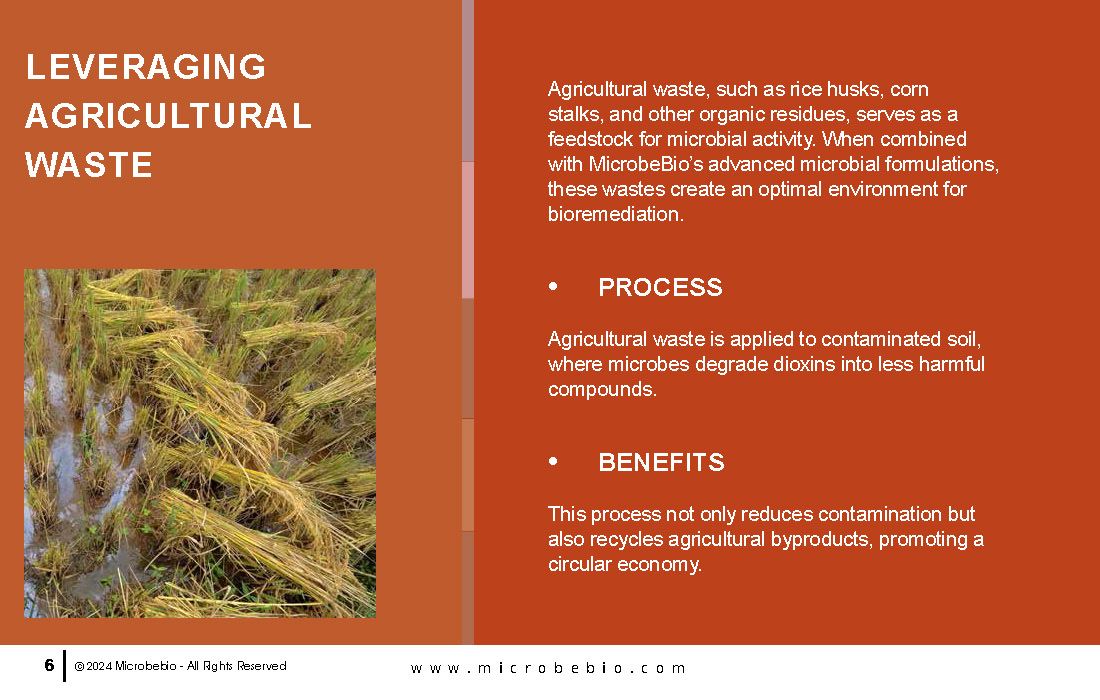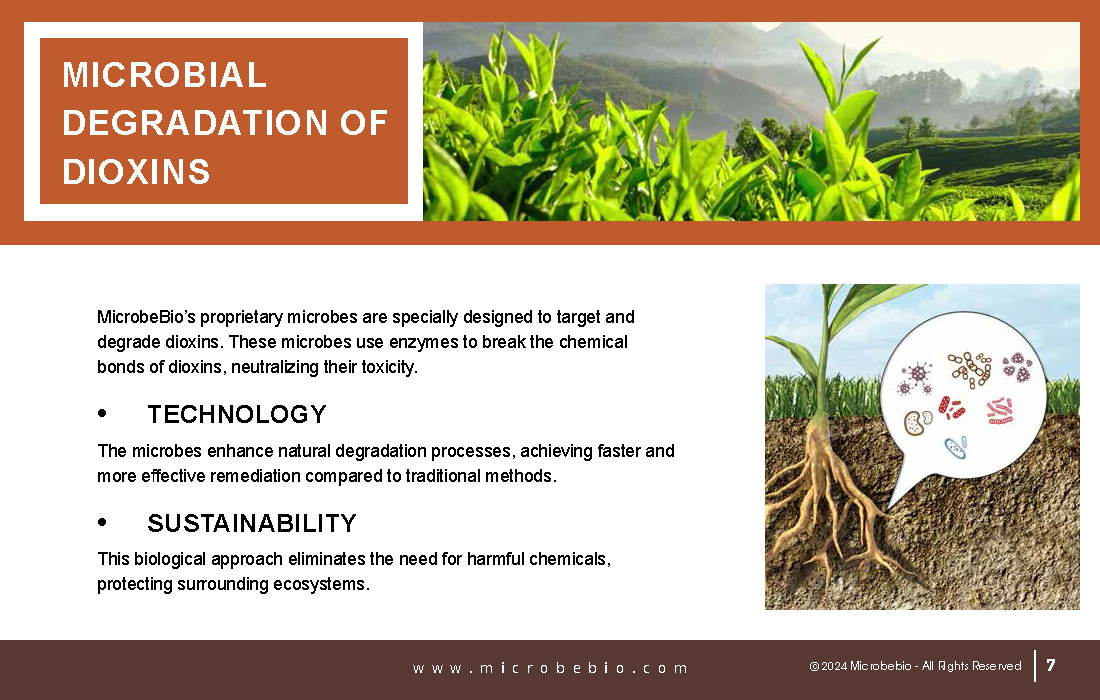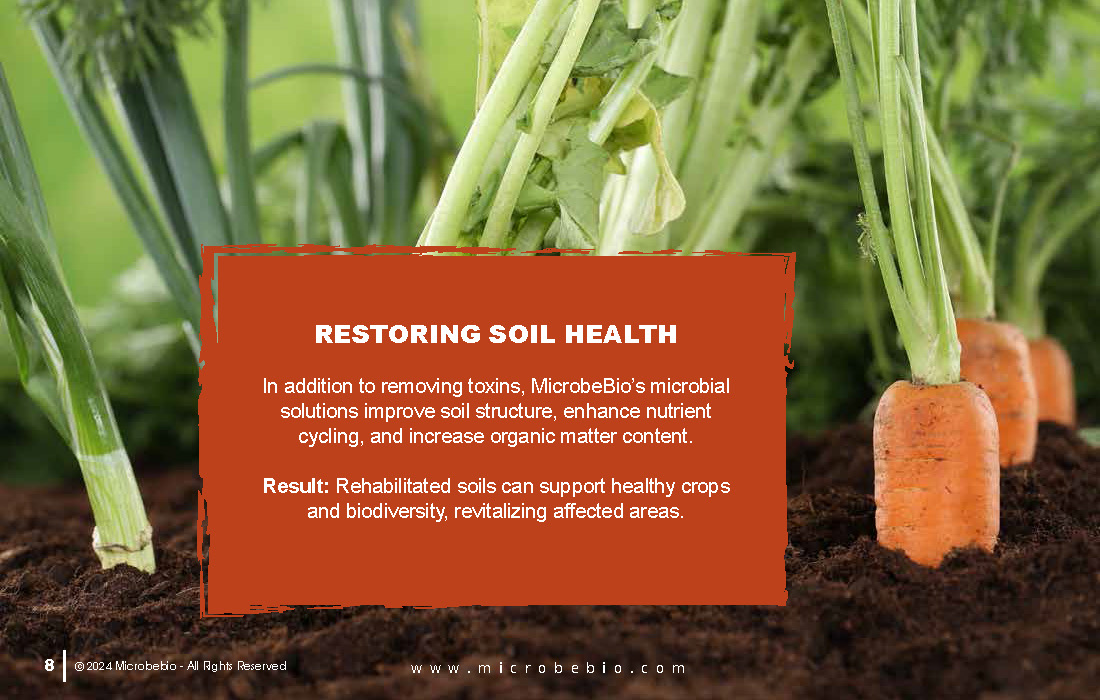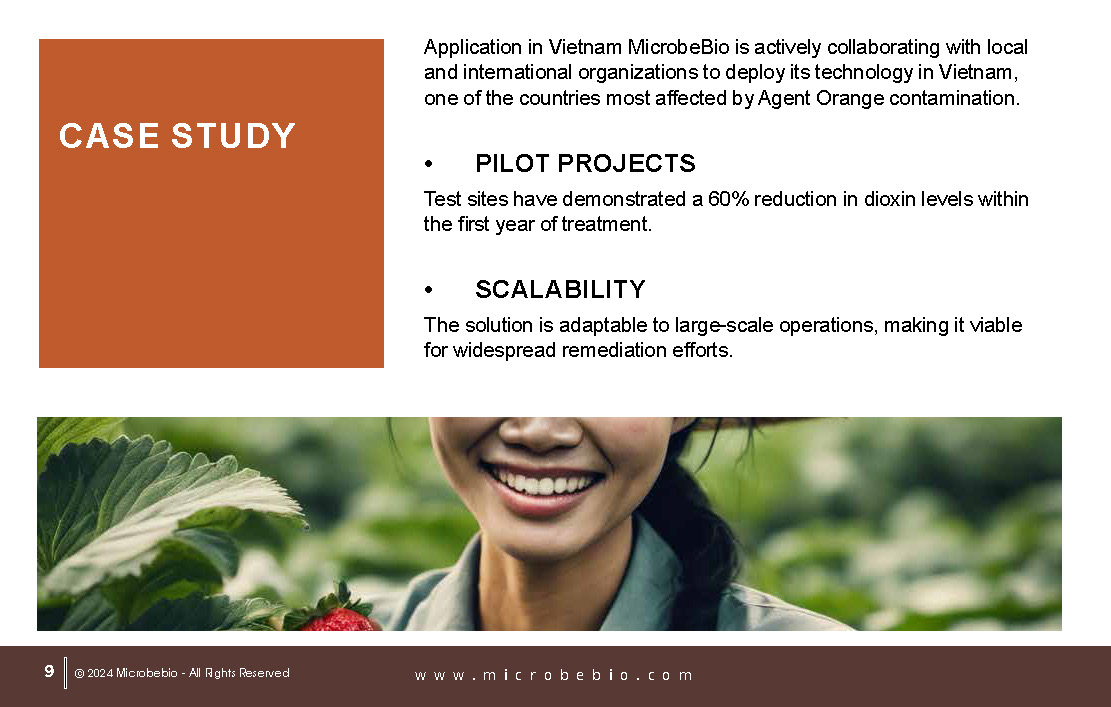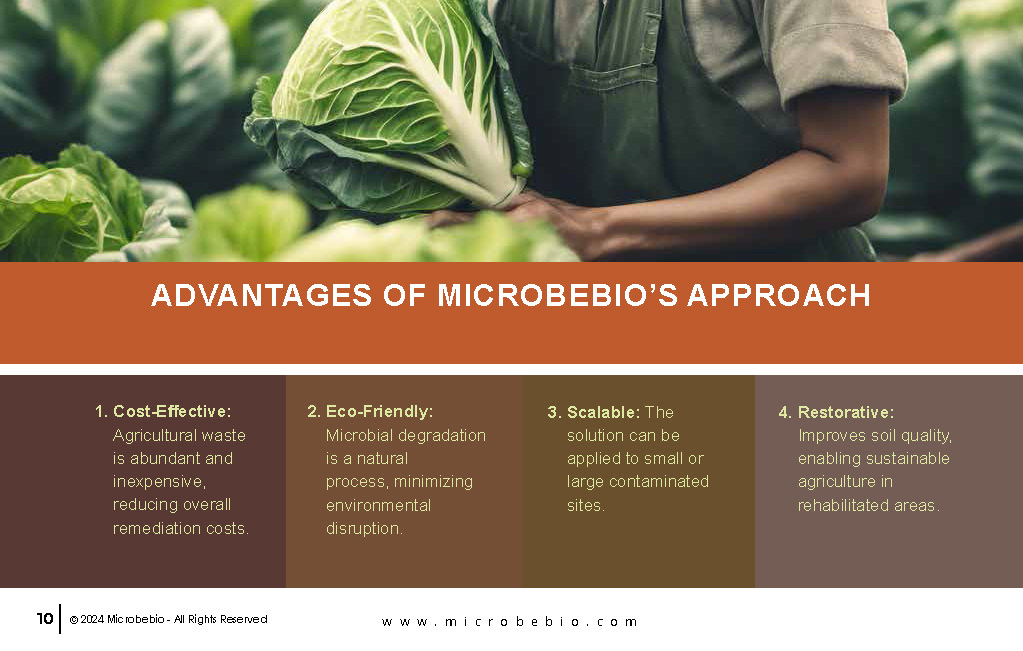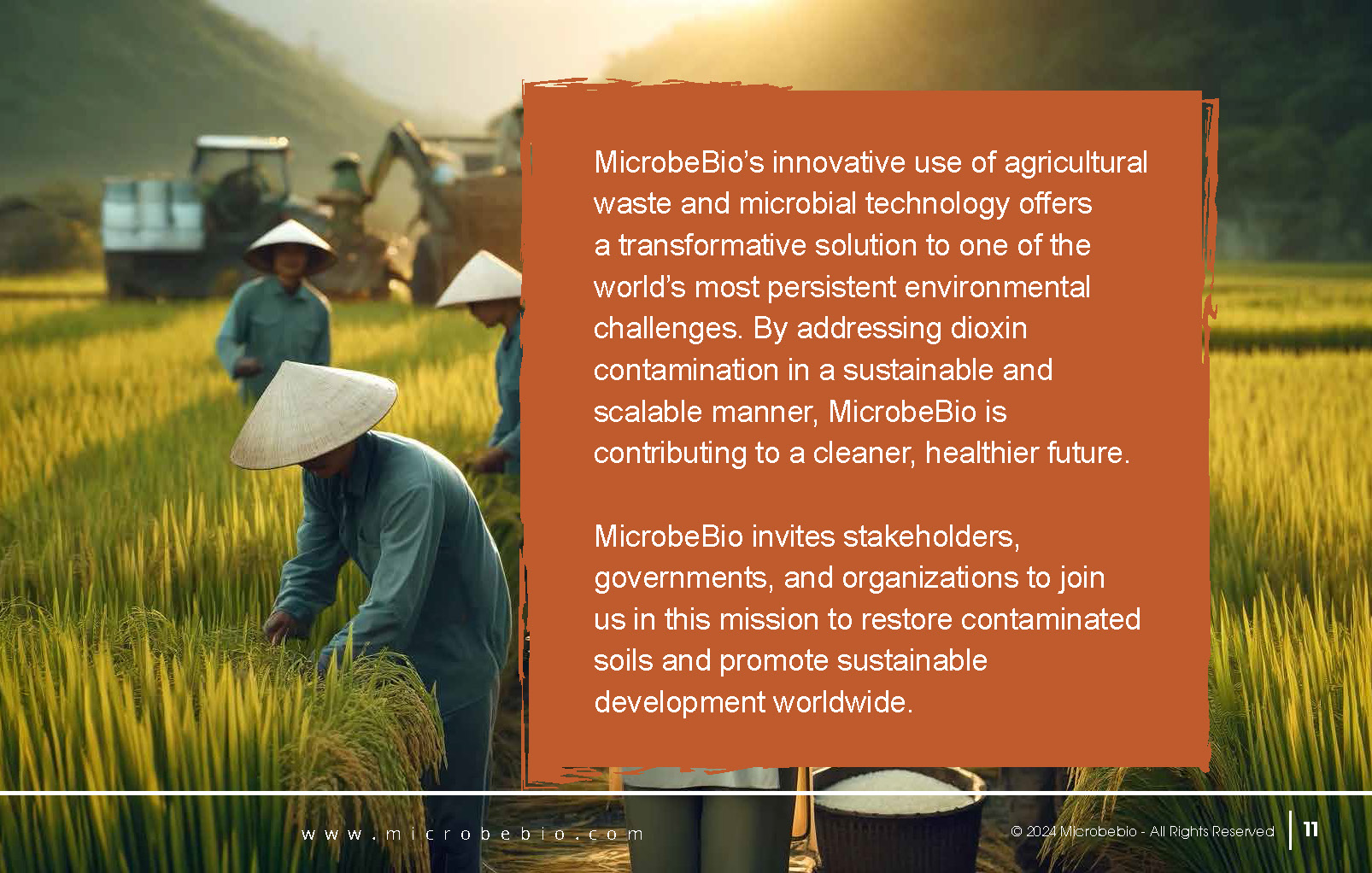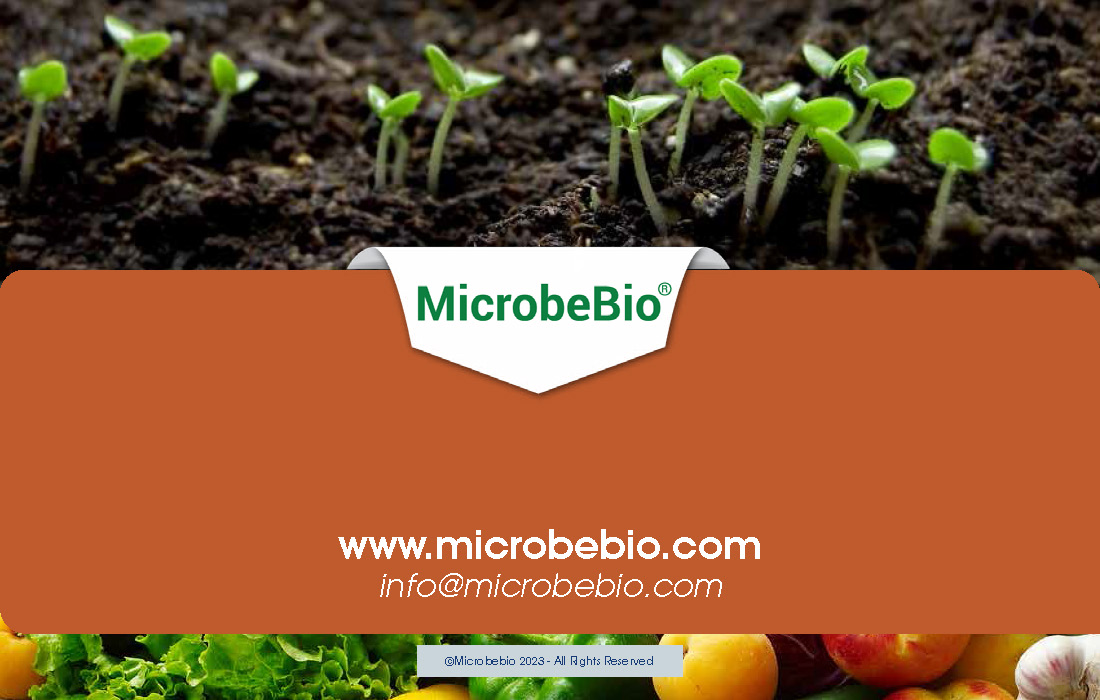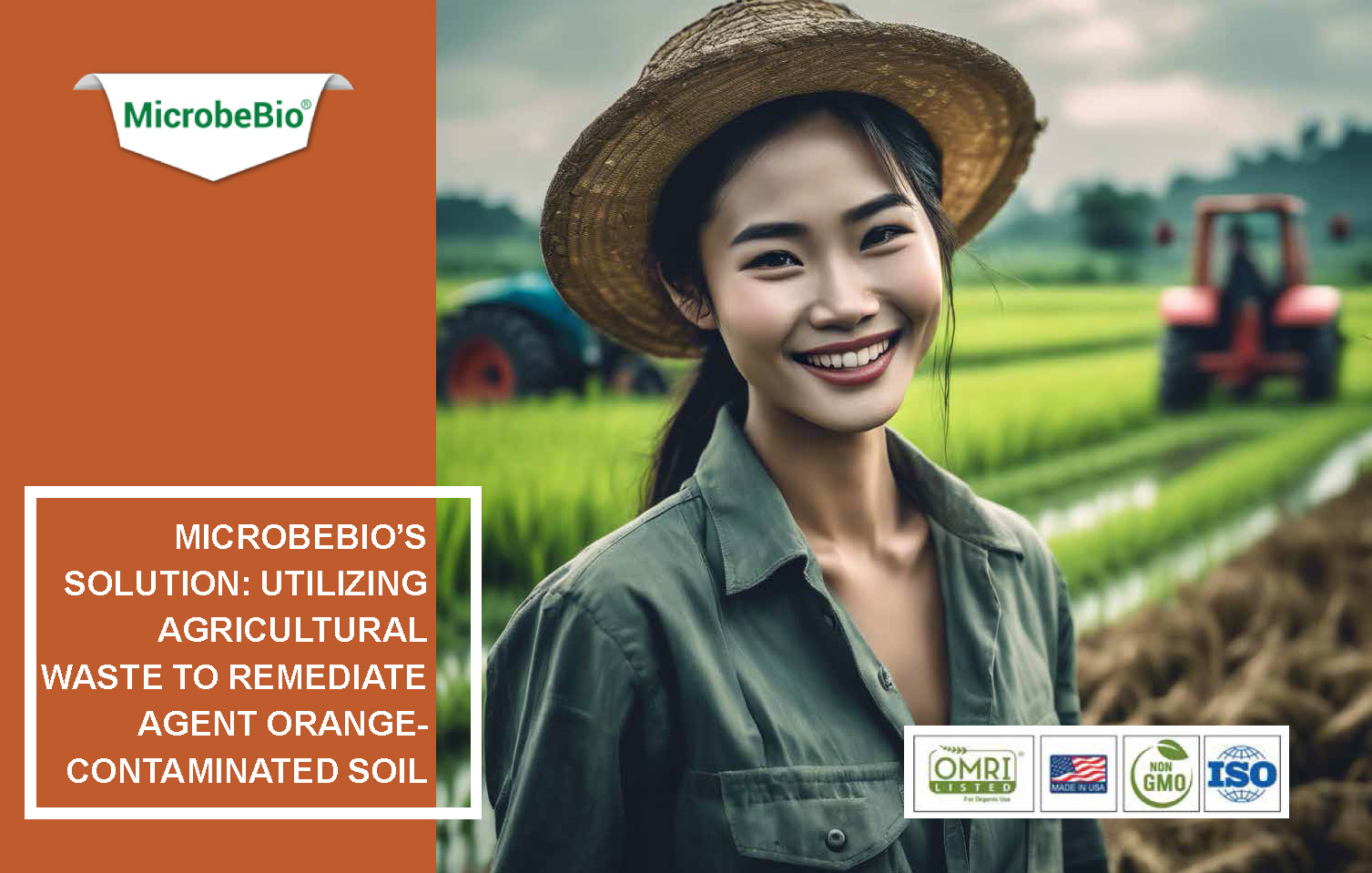MicrobeBio's Solution: Utilizing Agricultural Waste to Remediate Agent Orange-Contaminated Soil
Introduction: Decades after its use during the Vietnam War, Agent Orange continues to leave a devastating legacy, polluting soil with toxic dioxins that threaten human health and ecosystems. MicrobeBio, a leader in microbial and sustainable agricultural solutions, is pioneering innovative approaches to address this challenge. By leveraging agricultural waste and advanced microbial technologies, MicrobeBio offers a natural, effective, and scalable solution for remediating dioxin-contaminated soils.
The Problem: Persistent Soil Contamination Agent Orange, a defoliant used extensively during the Vietnam War, has contaminated vast areas of soil with dioxins, highly toxic compounds that persist in the environment for decades. These pollutants disrupt ecosystems, enter the food chain, and pose severe health risks, including cancer and birth defects.
- Impact on Agriculture:Contaminated soils reduce crop productivity and threaten food security in affected regions.
- Environmental Challenge:Traditional remediation methods, such as soil excavation and chemical treatment, are costly, invasive, and often unsustainable.
MicrobeBio’s Innovative Solution: MicrobeBio integrates agricultural waste and proprietary microbial formulations to break down dioxins and restore soil health. This approach is cost-effective, sustainable, and aligns with MicrobeBio’s commitment to environmental protection.
- Leveraging Agricultural Waste:Agricultural waste, such as rice husks, corn stalks, and other organic residues, serves as a feedstock for microbial activity. When combined with MicrobeBio’s advanced microbial formulations, these wastes create an optimal environment for bioremediation.
- Process:Agricultural waste is applied to contaminated soil, where microbes degrade dioxins into less harmful compounds.
- Benefits:This process not only reduces contamination but also recycles agricultural byproducts, promoting a circular economy.
- Microbial Degradation of Dioxins:MicrobeBio’s proprietary microbes are specially designed to target and degrade dioxins. These microbes use enzymes to break the chemical bonds of dioxins, neutralizing their toxicity.
- Technology:The microbes enhance natural degradation processes, achieving faster and more effective remediation compared to traditional methods.
- Sustainability:This biological approach eliminates the need for harmful chemicals, protecting surrounding ecosystems.
- Restoring Soil Health:In addition to removing toxins, MicrobeBio’s microbial solutions improve soil structure, enhance nutrient cycling, and increase organic matter content.
- Result:Rehabilitated soils can support healthy crops and biodiversity, revitalizing affected areas.
Case Study: Application in Vietnam MicrobeBio is actively collaborating with local and international organizations to deploy its technology in Vietnam, one of the countries most affected by Agent Orange contamination.
- Pilot Projects:Test sites have demonstrated a 60% reduction in dioxin levels within the first year of treatment.
- Scalability:The solution is adaptable to large-scale operations, making it viable for widespread remediation efforts.
Advantages of MicrobeBio’s Approach:
- Cost-Effective:Agricultural waste is abundant and inexpensive, reducing overall remediation costs.
- Eco-Friendly:Microbial degradation is a natural process, minimizing environmental disruption.
- Scalable:The solution can be applied to small or large contaminated sites.
- Restorative:Improves soil quality, enabling sustainable agriculture in rehabilitated areas.
Conclusion: MicrobeBio’s innovative use of agricultural waste and microbial technology offers a transformative solution to one of the world’s most persistent environmental challenges. By addressing dioxin contamination in a sustainable and scalable manner, MicrobeBio is contributing to a cleaner, healthier future.
MicrobeBio invites stakeholders, governments, and organizations to join us in this mission to restore contaminated soils and promote sustainable development worldwide.
